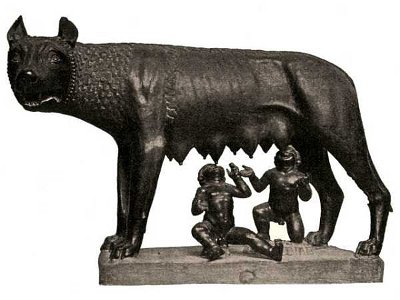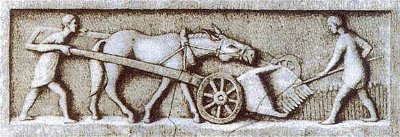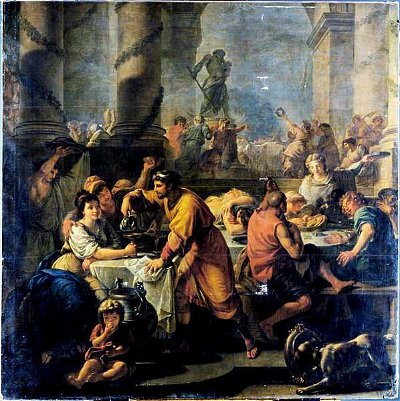16. On what date did the ancient Romans celebrate the Lupercalia?
From Quiz Tales of the Lupercalia
Answer:
February 15
The ancient Romans enjoyed a variety of holidays during the calendar year; on January 9 the Agonalia was held in honor of the god Janus, and on March 15 the Feriae Iovi, sacred to Jupiter, was celebrated. The Veneralia, which honored Venus, took place on April 1.
February 15 was the date of the Lupercalia, also called the "dies Februatus" after the "februa", instruments used in the ritual. The goddess Juno, who was called Juno Februalis during the Lupercalia, was the festival's patron deity. Different sources claim a variety of people may have actually influenced the beginnings of the ancient festival - the Etruscans (as already mentioned), along with Greeks, Latins, and Sabines - all early groups who inhabited the area around Rome and influenced Roman development.
 Rome was built on seven hills, but, according to legend, Romulus built the original city on the Palatine Hill. Today it is one of the principal archaeological sites in the city. Let's check it out!
Rome was built on seven hills, but, according to legend, Romulus built the original city on the Palatine Hill. Today it is one of the principal archaeological sites in the city. Let's check it out!  This quiz is the first of a two-part series about the ancient Roman celebration of the Saturnalia. You may be surprised at the similarities you will notice to modern holiday customs!
This quiz is the first of a two-part series about the ancient Roman celebration of the Saturnalia. You may be surprised at the similarities you will notice to modern holiday customs!  After the public ceremonies for the Saturnalia were held, people went home and participated in private festivities. Come along for the fun!
After the public ceremonies for the Saturnalia were held, people went home and participated in private festivities. Come along for the fun!  = Top 5% Rated Quiz,
= Top 5% Rated Quiz,
 Top 10% Rated Quiz,
Top 10% Rated Quiz,
 Top 20% Rated Quiz,
Top 20% Rated Quiz,
 A Well Rated Quiz
A Well Rated Quiz